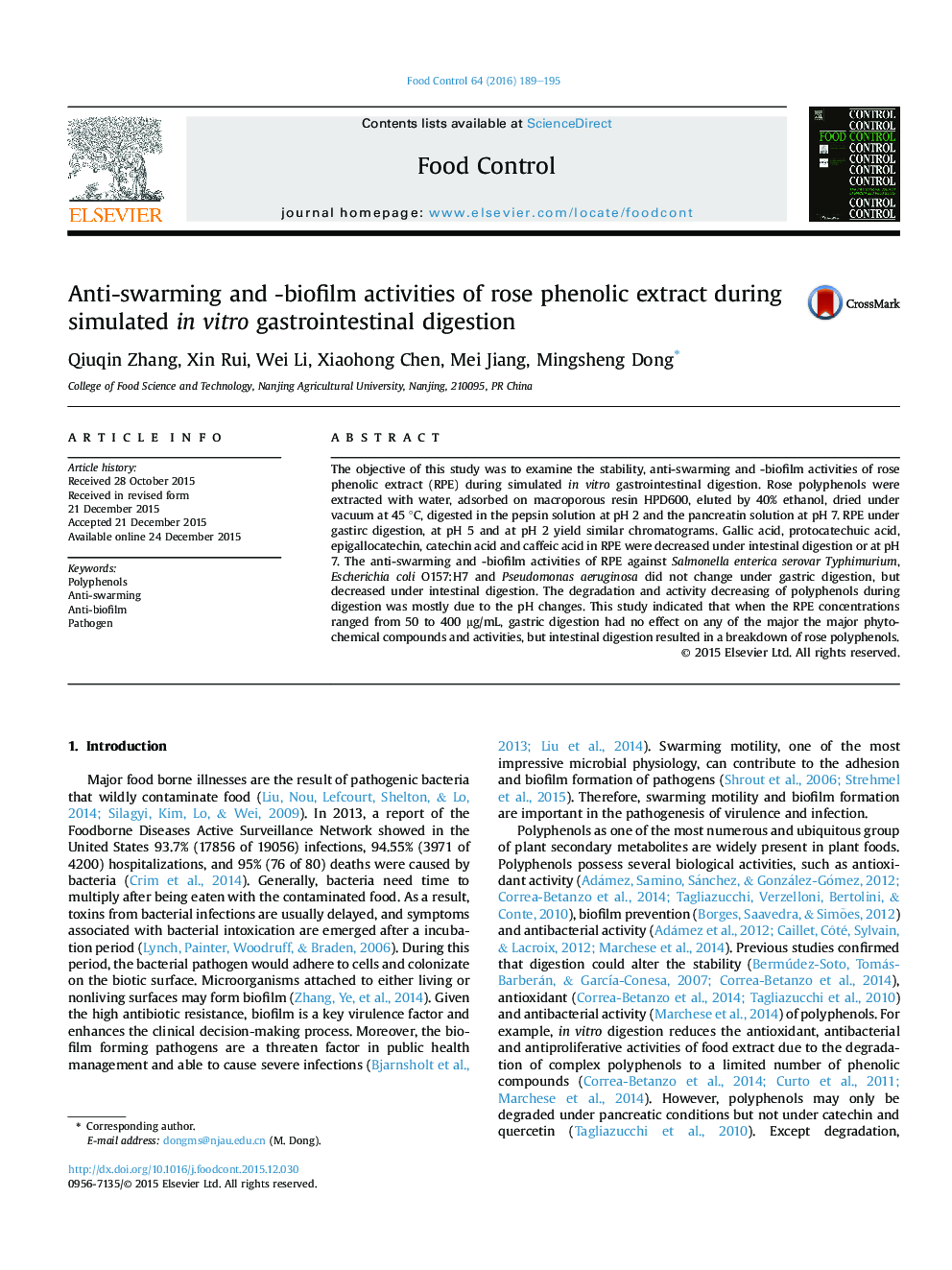| Article ID | Journal | Published Year | Pages | File Type |
|---|---|---|---|---|
| 6390189 | Food Control | 2016 | 7 Pages |
Abstract
The objective of this study was to examine the stability, anti-swarming and -biofilm activities of rose phenolic extract (RPE) during simulated in vitro gastrointestinal digestion. Rose polyphenols were extracted with water, adsorbed on macroporous resin HPD600, eluted by 40% ethanol, dried under vacuum at 45 °C, digested in the pepsin solution at pH 2 and the pancreatin solution at pH 7. RPE under gastirc digestion, at pH 5 and at pH 2 yield similar chromatograms. Gallic acid, protocatechuic acid, epigallocatechin, catechin acid and caffeic acid in RPE were decreased under intestinal digestion or at pH 7. The anti-swarming and -biofilm activities of RPE against Salmonella enterica serovar Typhimurium, Escherichia coli O157:H7 and Pseudomonas aeruginosa did not change under gastric digestion, but decreased under intestinal digestion. The degradation and activity decreasing of polyphenols during digestion was mostly due to the pH changes. This study indicated that when the RPE concentrations ranged from 50 to 400 μg/mL, gastric digestion had no effect on any of the major the major phytochemical compounds and activities, but intestinal digestion resulted in a breakdown of rose polyphenols.
Keywords
Related Topics
Life Sciences
Agricultural and Biological Sciences
Food Science
Authors
Qiuqin Zhang, Xin Rui, Wei Li, Xiaohong Chen, Mei Jiang, Mingsheng Dong,
